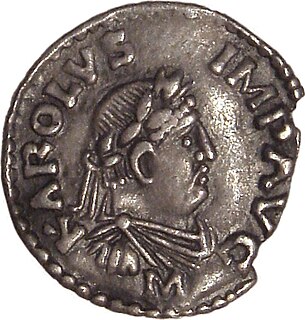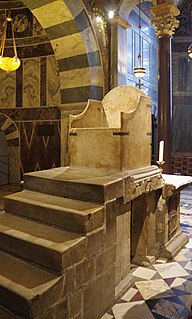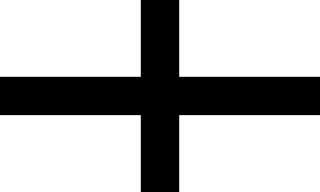
The Holy Roman Empire was a multi-ethnic complex of territories in Western and Central Europe that developed during the Early Middle Ages and continued until its dissolution in 1806 during the Napoleonic Wars. The largest territory of the empire after 962 was the Kingdom of Germany, though it also included the neighboring Kingdom of Bohemia and Kingdom of Italy, plus numerous other territories, and soon after the Kingdom of Burgundy was added. However, while by the end of the 15th century the Empire was still in theory composed of three major blocks – Italy, Germany, and Burgundy – in practice only the Kingdom of Germany remained, with the Burgundian territories lost to France and the Italian territories, ignored in the Imperial Reform, although formally part of the Empire, were splintered into numerous de facto independent territorial entities. The external borders of the Empire did not change noticeably from the Peace of Westphalia – which acknowledged the exclusion of Switzerland and the Northern Netherlands, and the French protectorate over Alsace – to the dissolution of the Empire. By then, it largely contained only German-speaking territories, plus the Kingdom of Bohemia, the southern Netherlands and lands of Carniola. At the conclusion of the Napoleonic Wars in 1815, most of the Holy Roman Empire was included in the German Confederation.

The prince-electors, or electors for short, were the members of the electoral college that elected the emperor of the Holy Roman Empire.

The Holy Roman Emperor, originally and officially the Emperor of the Romans during the middle ages, and also known as the German-Roman Emperor since the early modern period, was the ruler and head of state of the Holy Roman Empire. The Empire was considered by the Roman Catholic Church to be the only legal successor of the Roman Empire during the Middle Ages and the early modern period. The title was held in conjunction with the title of King of Italy from the 8th to the 16th century, and, almost without interruption, with the title of King of Germany throughout the 12th to 18th centuries.

King of the Romans was the title used by the German king following his election by the princes from the reign of Emperor Henry II (1014–1024) onward. The title predominantly amounted to being the emperor of the Holy Roman Empire and was dependent upon coronation by the pope.

The election of a Holy Roman Emperor was generally a two-stage process whereby, from at least the 13th century, the King of the Romans was elected by a small body of the greatest princes of the Empire, the prince-electors. This was then followed shortly thereafter by his coronation as Emperor by the Pope. In 1356, the Emperor Charles IV promulgated the Golden Bull, which became the fundamental law by which all future kings and emperors were elected. After 1508, the Pope recognized election alone to be sufficient for the use of the Imperial title. The last papal coronation took place in 1530.

An imperial vicar was a prince charged with administering all or part of the Holy Roman Empire on behalf of the emperor. Later, an imperial vicar was invariably one of two princes charged by the Golden Bull with administering the Holy Roman Empire during an interregnum.

The Free Imperial City of Aachen, also known in English by its French name of Aix-la-Chapelle and today known sinply as Aachen, was a Free Imperial City and spa of the Holy Roman Empire west of Cologne and southeast of the Low Countries, in the Lower Rhenish–Westphalian Circle. The pilgrimages, the Coronation of the Holy Roman Emperor, flourishing industries and the privileges conferred by various emperors made it one of the most prosperous market towns of the Holy Roman Empire.
The imperial election of 1376 was an imperial election held to select the emperor of the Holy Roman Empire. It took place in Frankfurt on June 10.
The imperial election of May 22, 1400 was an imperial election held to select the emperor of the Holy Roman Empire. It took place in Frankfurt.
The imperial election of August 21, 1400 was an imperial election held to select the emperor of the Holy Roman Empire. It took place in Rhens.
The imperial election of September 20, 1410 was an imperial election held to select the emperor of the Holy Roman Empire.
The imperial election of October 1, 1410 was an imperial election held to select the emperor of the Holy Roman Empire.
The imperial election of 1411 was an imperial election held to select the emperor of the Holy Roman Empire. It took place on July 21.
The imperial election of 1438 was an imperial election held to select the emperor of the Holy Roman Empire. It took place in Frankfurt on March 18.
The imperial election of 1531 was an imperial election held to select the emperor of the Holy Roman Empire. It took place in Cologne on January 5.
The imperial election of 1575 was an imperial election held to select the emperor of the Holy Roman Empire. It took place in Regensburg on October 27.

The imperial election of 1612 was an imperial election held to select the emperor of the Holy Roman Empire. It took place in Frankfurt on June 13.
The imperial election of 1658 was an imperial election held to select the emperor of the Holy Roman Empire. It took place in Frankfurt on July 18.
The imperial election of 1764 was an imperial election held to select the emperor of the Holy Roman Empire. It took place in Frankfurt on March 27.
The imperial election of 1138 was an imperial election held to select the emperor of the Holy Roman Empire. It took place in Koblenz on 7 March.
This page is based on this
Wikipedia article Text is available under the
CC BY-SA 4.0 license; additional terms may apply.
Images, videos and audio are available under their respective licenses.






